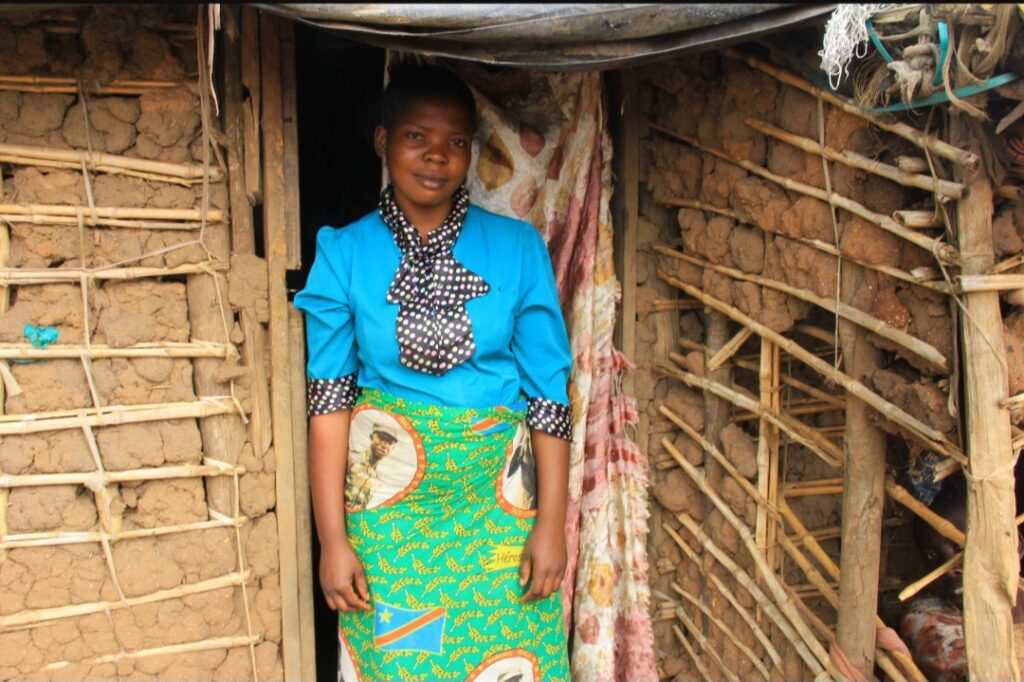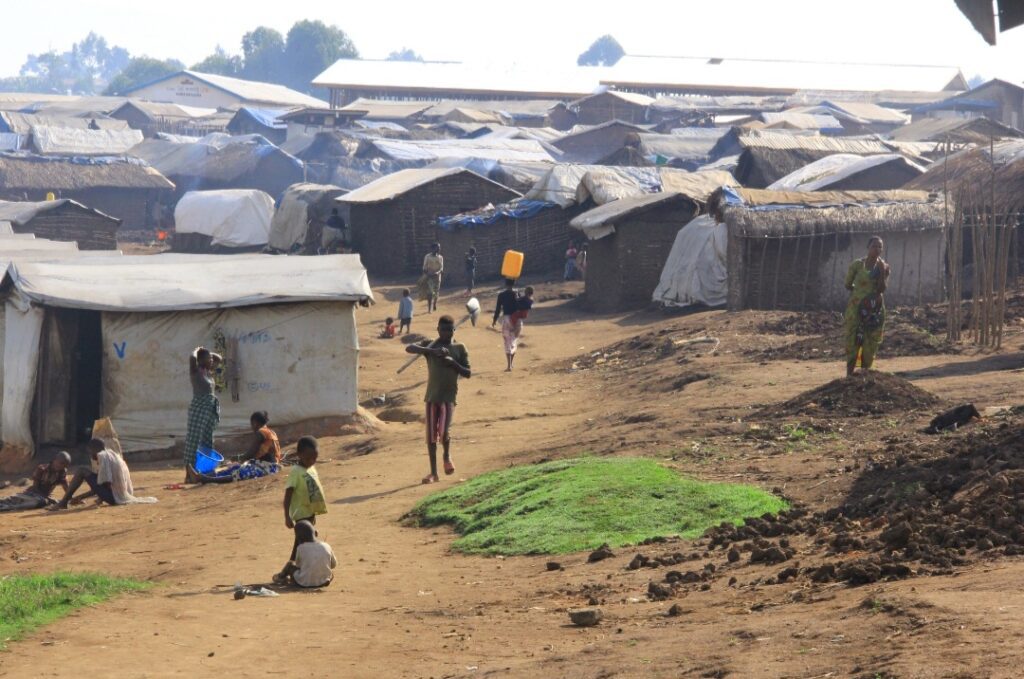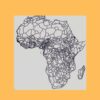“The militias are still active and the weapons are still circulating.”
People displaced by militia violence in the Democratic Republic of the Congo’s northeastern Ituri province have struggled for years in tented camps that lack bare essentials and are frequently attacked by ruthless armed groups.
But now residents of some camps say their situation could become even worse if and when the peacekeepers that patrol the sites withdraw as part of the wider departure of the UN mission in DRC, which is known by its French acronym MONUSCO.
“The militias are still active and the weapons are still circulating,” Dieudonné Munyoro, president of the Djaiba displacement camp in Ituri’s Djugu territory, told The New Humanitarian. “If MONUSCO left in this context, they would be sacrificing us.”
Munyoro and other Djaiba residents said blue helmets in tanks drive around their vulnerable camp every day. They said an adjacent peacekeeper base also offers them a safe place to temporarily sleep outside should militia fighters come to attack them.
On the ground for 25 years, MONUSCO is currently embarking on a phased withdrawal from DRC. It has been under pressure to leave from both the Congolese government and from the UN Security Council, which is jaded by its size, cost, and longevity.
It is unclear when the mission will complete its disengagement. The Congolese government had requested it withdraw at the end of this year, though it has since softened that demand as armed conflicts worsen in eastern parts of the country.
Many Congolese support the withdrawal, including large numbers in Ituri. They believe MONUSCO has failed to protect civilians, and presided over a worsening security crisis that has seen conflict become entrenched and the number of armed groups balloon.
However, others argue that the blue helmets are still providing some semblance of protection, dissuading armed groups from attacking civilians in some places, and patching over weaknesses in the thinly spread yet frequently abusive national army.
The latter sentiment was particularly evident on a recent trip by The New Humanitarian to rural parts of Ituri. The long-suffering province saw conflict return in 2017, when a mostly Lendu militia group called CODECO began attacking Hema civilians.
People displaced by the conflict said the withdrawal will not only impact their security, but will have a bearing on community dialogue initiatives sponsored by MONUSCO, and the various outreach efforts that the mission undertook with armed groups.
“We must avoid making the departure of the blue helmets a simple decision of politicians who live better in the capital and sleep peacefully,” said Munyoro, from the Djaiba camp. “We must also listen to us, the communities of the affected areas.”
A view from the camps
Over 1.5 million people have been displaced by fighting in Ituri over the past few years. It is one of the worst of the different armed conflicts that are currently impacting eastern DRC, where more than seven million people have been uprooted overall.
MONUSCO says it currently provides direct physical protection to over 100,000 especially vulnerable displaced people who are living in camps in Djugu. The territory is one of five in Ituri and is the most affected by CODECO violence.
Djaiba resident Désiré Dhekana told The New Humanitarian that peacekeepers have intensified patrols in the camp over the past two years, and have also escorted people to their fields, enabling them to grow and harvest crops after a period of severe hunger.
“Our crops – cassava, corn, beans, and sweet potatoes – were rotting in our fields while we were starving in the camps,” Dhekana said, carrying a hoe over his shoulder as he returned to Djaiba from his land.
Another Djaiba resident, Imani Prisca, said she didn’t dare venture into fields surrounding the camp in the months after escaping the nearby town of Fataki following a 2020 CODECO attack that saw her house burnt down.

Claude Sengenya/TNH
Imani Prisca saw her family home in Fataki burned down by CODECO fighters in 2020. She has since lived in a displacement camp near a UN peacekeeper base.
However, Prisca said she now feels much safer thanks to the presence of the peacekeepers. She said nobody has been killed in or around her camp for a significant amount of time.
Communities that have stayed behind in vulnerable villages also benefit from MONUSCO’s presence, said Désiré Maladro, president of the civil society in Djugu’s Bahema Badjere district.
Maladro said CODECO attempted a recent attack on the village of Bule, which is only a few kilometers from Djaiba. Maladro said alerts were sent to MOUNSCO, which then repelled the attack with the support of Congolese soldiers.
“Without the peacekeepers and the FARDC (the acronym of the Congolese national army), I think there would have been more than 100 deaths in Bule,” Maladro told The New Humanitarian.
Few residents of camps and villages in Djugu who spoke to The New Humanitarian expressed confidence in the national army taking over civilian protection duties from MONUSCO.
Trésor Zephanie, a representative of youth in Djaiba – which hosts around 10,000 displaced people – said underpaid soldiers are “brutal in their interventions” and usually more interested in racketeering civilians than doing their jobs.
A MONUSCO official in Djaiba, who asked not to be named so they could speak freely, said there are not enough army soldiers stationed in the territory, and that commanders frequently overstate their strength on the ground.
“A Congolese officer will say they have a whole company in a given village, and we will refrain from deploying there,” the official said. “But when there is an attack against civilians and we ask why they did not intervene, they will reveal there were only four soldiers.”
Community dialogue and armed group outreach
Many Ituri residents are less supportive of MONUSCO staying. A 2022 survey by DRC-focused research groups found that 73% of respondents in the province thought the mission should leave immediately, and 57% found the mission “very corrupt”.
There has been especially strong opposition in Mambasa, a territory in western Ituri. The area has suffered attacks by the Allied Democratic Forces (ADF), a rebel group of Ugandan origins that has officially allied itself to the so-called Islamic State.
Perceived inaction by MONUSCO in the face of ADF attacks – widely feared for their brutality – has been a perennial complaint of Congolese who live in areas where the rebel group is active, especially in neighbouring North Kivu province.
Still, in camps and villages impacted by CODECO violence in Djugu, residents said MONUSCO would be missed, and not only for the protection that its troops are able to offer.
Désiré Belo Lombuni, president of civil society in the village of Fataki, said MONUSCO has helped facilitate dialogue between Hema and Lendu communities that have been polarised by the conflict.
Lombuni said social cohesion had deteriorated to the extent that the two communities could not attend the same markets in his areas. After dialogue efforts, however, he said people began “living side by side” again.
Residents and UN officials said MONUSCO has also been able to negotiate with certain CODECO factions in a way that it hasn’t been able to do with other armed groups like the ADF and the Rwanda-backed M23 movement.
Prem Proudel, a Nepalese MONUSCO officer who commands the UN forces in Djugu, described how he recently helped negotiate with a CODECO group that set up a camp within the grounds of a local school.
Proudel said his superiors ordered him to chase away the group but he preferred to pursue a dialogue, using local customary authorities to appeal to the armed group’s leaders.
“We made them understand that their presence in the school grounds was compromising the future of the children in their region,” Proudel said. “They decided to demolish their huts and build them elsewhere, far from the schools.”
“The local authorities were afraid that young boys would be enlisted into the militia and that young girls would be exposed to rape,” added Dhekana Lingandu Ayyub, a community leader involved in the negotiations. “MONUSCO has rid us of this threat.”
Ayyub said the mission has also provided his community with other benefits beyond security. He said government services around his village are “failing” and that residents often go to peacekeeper camps for treatment and medicine.
Other community leaders and displaced people cited benefiting from MONUSCO’s fire rescue services, and its support for leisure activities from building sports spaces to providing sports equipment.
Unresolved problems
Community leaders and displaced people in Djugu said the mission should not leave the area until militias have been disarmed and a proper peace process is implemented – something that seems a long way away.
Though the current conflict began with CODECO attacking Hema civilians in 2017, it has become more complex and fragmented, with some Hema joining militias, CODECO splitting into different factions, and other communities being sucked into the fighting.

Claude Sengenya/TNH
A view of Djaiba displacement camp, where 10,000 people are living after escaping CODECO attacks.
The demands of armed groups vary, though the violence can trace back to the divisive racial theories of Belgium colonialists (who preferenced Hema over Lendu), unfair land laws, and ruinous interventions by neighbouring states during the 1990s and 2000s.
Dieudonné Kpadyu Lodyi, the village chief of Loda, said he experienced armed conflict in the 2000s but believes more firearms are circulating today than in the past, when a lot of militiamen fought with bladed weapons.
“As long as there are those within the communities who hold weapons, the threat is there,” Lodyi said. “And whatever we do [in the interests of peace] without disarmament, we are just bandaging a wound.”
“Leaving Congo without helping to disarm the militiamen who are making the communities insecure would be a failure of the UN intervention,” added Maki Safari, a trader in Fataki who sells telecommunication products.
“As long as insecurity persists, the coexistence forged over time will be fragile and will be broken at any time,” Safari told The New Humanitarian.
Back in Djaiba, Zephanie, the representative of local youth, said nobody in his camp will stay put should MONUSCO leave. “It is because of them that we are still sleeping in this camp,” he said. “It is their presence that reassures us.”
This article was first published by the New Humanitarian:

